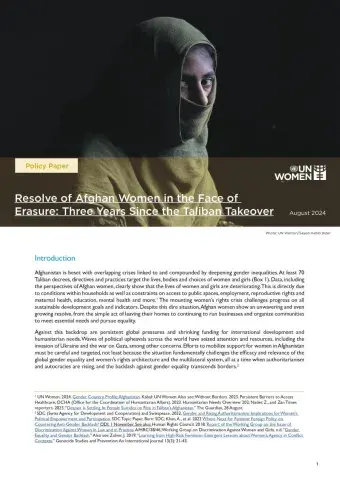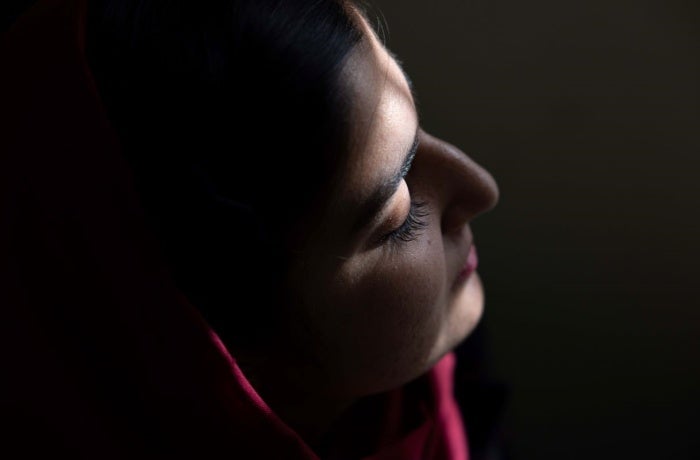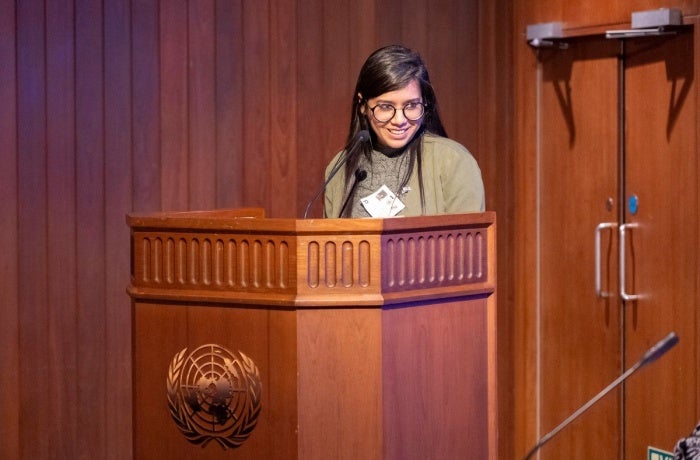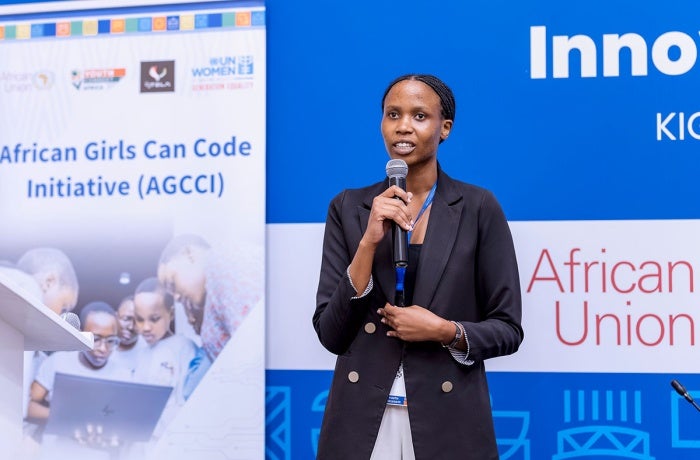Women in Afghanistan have not stopped striving for their rights, and neither should we
Three years since the Taliban takeover in Afghanistan, UN Women continues to work with Afghan women and girls striving for their freedoms and rights.
“I had studied journalism and worked for seven years as a journalist. After the [Taliban] takeover, I took a break from my work… I was afraid,” said Lina*, a 26-year-old Afghan journalist from Farah.
Lina* didn’t experience direct threats, but many other women have, since the Taliban took over Afghanistan on 15 August 2021, becoming the “de facto authorities” (DFA). Decades of progress on gender equality have been erased by a patchwork of more than 70 edicts, directives, and statements introduced by the Taliban, restricting women and girls’ rights in almost every aspect of their lives.
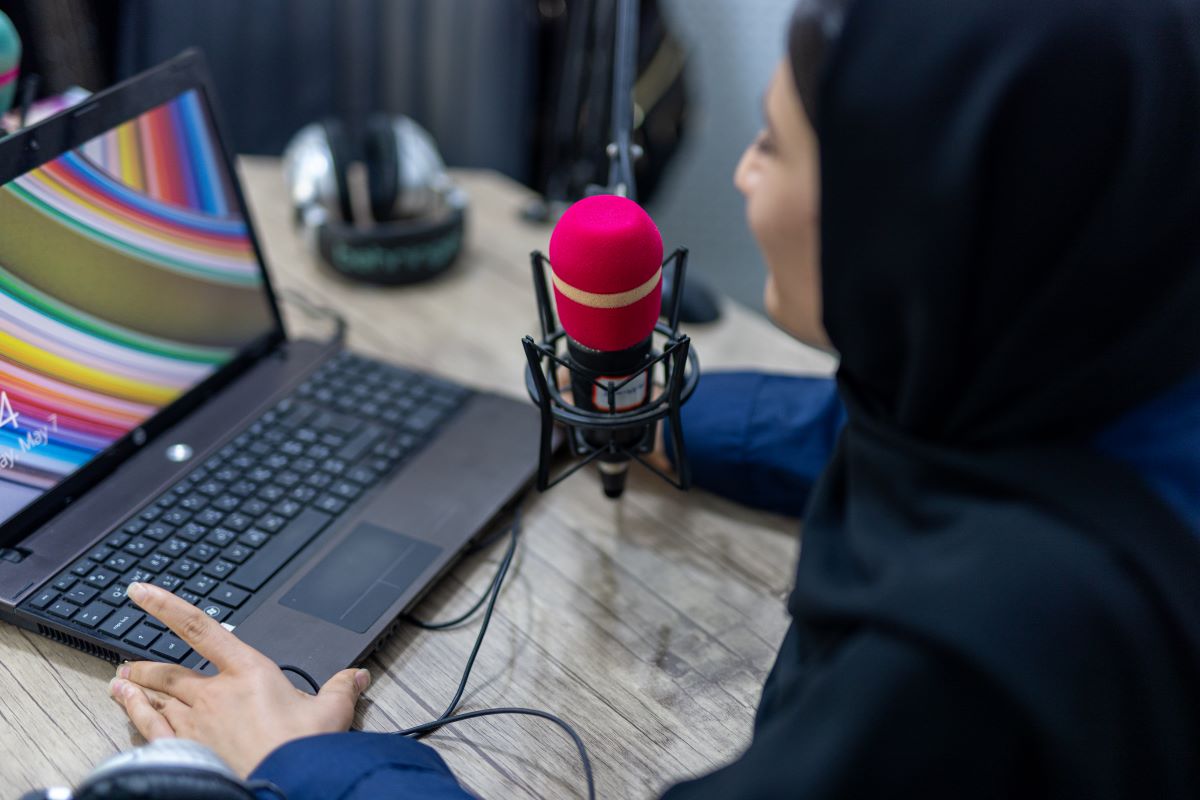
Restrictions on Afghan women’s mobility, education, work, and more
A decree enacted in December 2021 requires Afghan women to be accompanied by a male relative when traveling more than 77 kilometres (47 miles) from their homes. However, in some parts of the country women are expected to travel with a male guardian when traveling much shorter distances and can be interrogated and harassed at checkpoints when traveling alone.
Since March 2022, Afghan girls have been barred from attending secondary schools and suspended from universities by the end of that year. UN Women’s latest report on Afghanistan shows that 1.1. million secondary school-aged girls are now out of school. While primary schools remain open for girls, enrolment has dropped, because of social norms, access issues and safety concerns.
“Women want to work shoulder-to-shoulder with men. Women want the right to make decisions, not just in their homes but in government and other spaces. They want an education. They want their rights.”
Unsurprisingly, because of the various restrictions imposed by the Taliban, women’s overall employment has decreased disproportionately compared to men. A recent UN Women report shows that while some women are still working, their employment options are limited to those approved by the DFA and socially accepted, such as home-based work in feminized industries, like embroidery or handicrafts.
“These bans decrease women’s self-confidence and self-respect by relegating them to a corner of their home,” said Lina. “I know what they’re going through, so it’s very important for me to raise their voices. I want to help women by writing reports and telling their stories…And maybe, through this work, international organizations will hear them and give them a helping hand.”
Lina was among 147 Afghan women trained by UN Women to become community volunteers and storytellers, to consult women across Afghanistan to discuss issues that matter to them so that the international community and the DFA can be informed of their needs and priorities.
She was later hired to interview women in the communities affected by the earthquakes in Western Afghanistan in October 2023.
“The women who join these consultations really appreciate the chance to be heard,” shared Lina. “I remember one woman who was a teacher before the takeover and had a social advocacy foundation. She is a widow with two daughters to raise, but after the takeover and the restrictions on women, she lost her foundation and had no source of income. One of her daughters killed herself and that left her in a deep depression. But she was so happy to speak to me. She told me it was the first time in almost three years that someone was asking her about her life and feelings.”
Three years since the Taliban takeover, 8 per cent of respondents to a 2023 survey indicated knowing at least a woman or girl who had attempted suicide since August 2021, and 18 per cent of women consulted between August and October 2023 reported not meeting once with women outside their immediately family in the last three months.
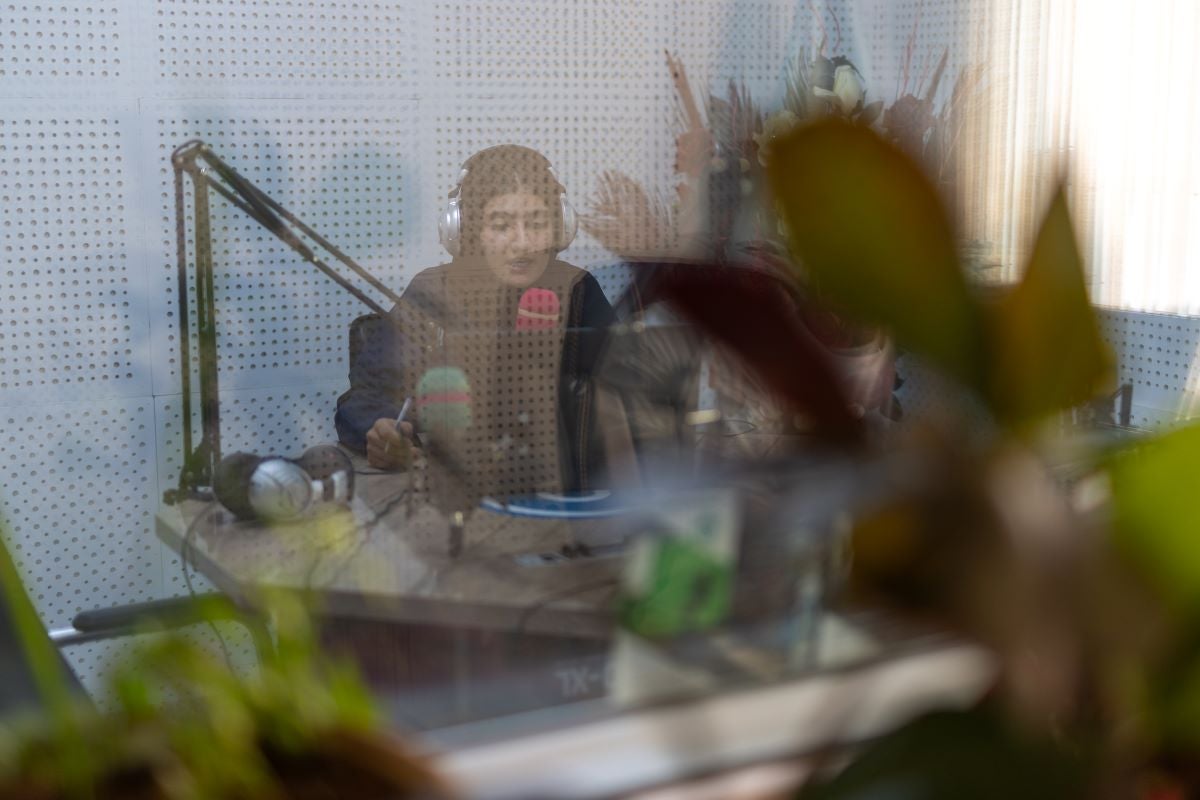
Women in Afghanistan are speaking out: ‘Women want an education… Women want to work shoulder-to-shoulder with men.’
On International Women’s Day, 8 March 2021, former journalist and teacher Hawa* launched a radio station in Western Afghanistan. A rarity in the country, this female-run radio station continues to operate today. What’s more, Radio Femme* is bringing education and awareness of rights to women and girls across the province.
Hawa shared that the station has since received many comments from women who have thanked them for informing them about their right to claim their inheritance. “They tell me that after they gained that awareness from us, they were able to ask their family for their rights. It’s amazing to me that our radio station has helped them raise their voices and [use the information to improve their situation],” said Hawa.
An estimated 60,000–70,000 Afghans tune in to Radio Femme broadcasts and access their content on social media, in Pashto and Dari – the two main languages spoken in Afghanistan.
The station has eight teachers covering different subjects, such as math and science for grades seven to 12.
UN Women supported the Radio Femme’s project through a programme to support women’s organizations with funding and capacity building training that enabled them to pay their employees and buy equipment. As of April 2024, UN Women’s programme has partnered with 113 organizations across 19 provinces and supported 515 women staff with salaries.
“Initiatives like these build hope among women and girls. This kind of support is critical for sustaining the women’s movement and countering the systematic erasure of women from public life,” explained UN Women Special Representative in Afghanistan Alison Davidian.
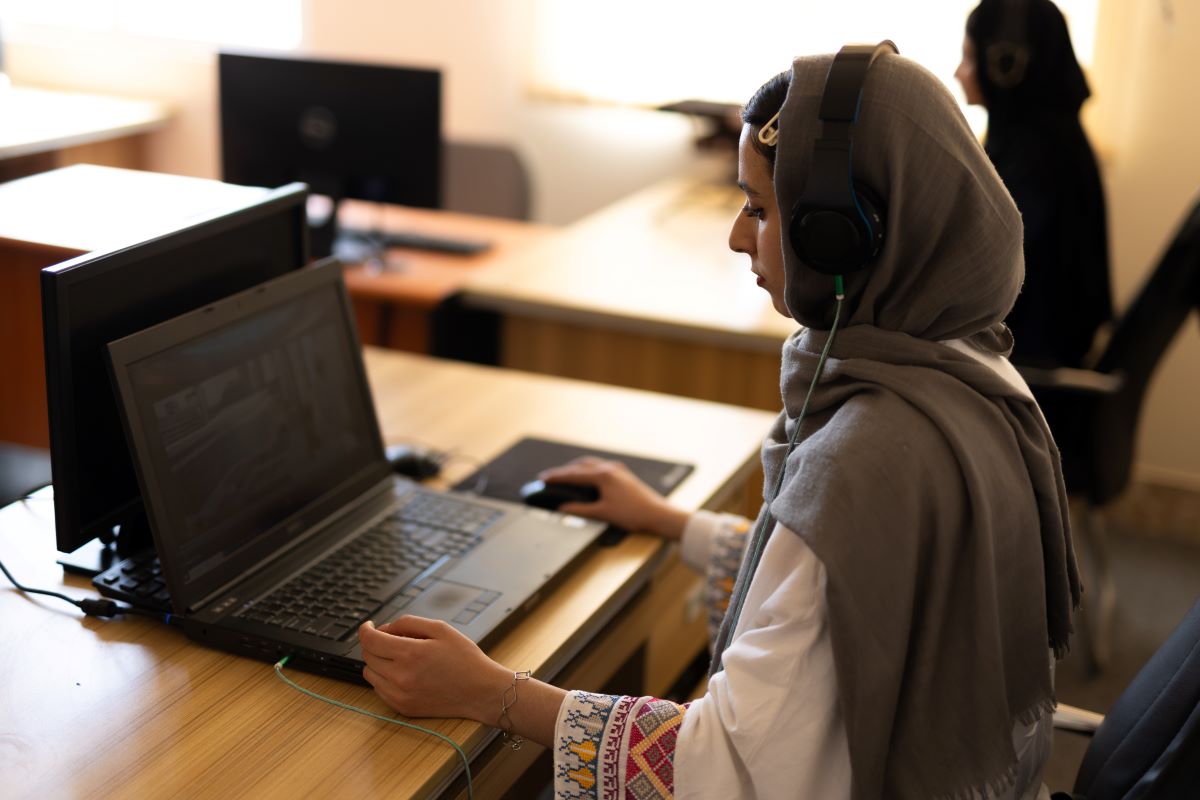
The television station that’s bringing education, awareness and hope to Afghan women and girls
Early this year, Begum TV, started by the Begum Organization for Women (Begum) became another harbinger of hope. Broadcasted from Paris, it offers educational programming for Afghans via satellite, and three hours of nightly prime-time “edutainment” talk shows.
Mohammed*, a teacher and father of two girls in Afghanistan’s central highlands, follows the shows eagerly. It offered him a glimmer of light: “My dream came true when I heard about the Begum Academy. … [It not only provides] education, but it creates hope for the future of thousands of girls.”
Begum TV’s programming includes daily classes in both Dari and Pashto for different grade levels, allowing students to learn and engage with teachers online, from home. Additionally, Begum Academy, an online platform launched in November 2023, has been offering the full Afghan school curriculum from grades seven to 12 in both Dari and Pashto languages, and online tutor support.
“We were very hopeless until we registered at [Begum] academy. We are happy that we can complete our studies here,” said Karima*. She is among more than 4,000 students across Afghanistan who are using the free online education courses.
The nightly prime-time content is raising viewers’ awareness of important issues, including women’s rights, mental health and medical information, even offering free health counselling and télé-consultations, and encouraging fathers to let their daughters study.
Begum is also empowering female journalists, who have lost their jobs since the Taliban takeover.
UN Women started supporting Begum in 2022. “Despite all the restrictions, organizations like Begum are continuing to operate, providing critical lifelines for Afghan women and girls to access information, including leadership and education opportunities,” said UN Women Special Representative to Afghanistan Alison Davidian. “This work is an example of Afghan women’s resilience and ability to adapt and innovate.”
Each woman-led initiative is a testament to Afghan women’s incredible resistance.
“Women want to work shoulder-to-shoulder with men. Women want the right to make decisions, not just in their homes but in government and other spaces. They want an education. They want their rights,” said Lina, determined to make her contribution to the movement.
*Names of individuals, stations, and locations have been changed in the text and in photo captions to protect their identity.







